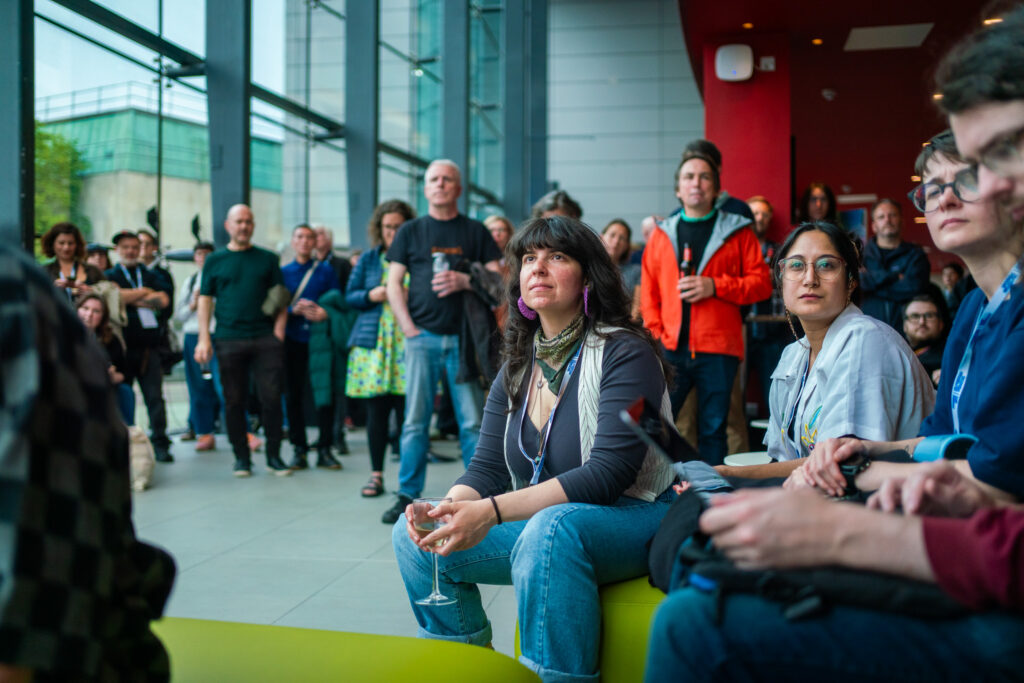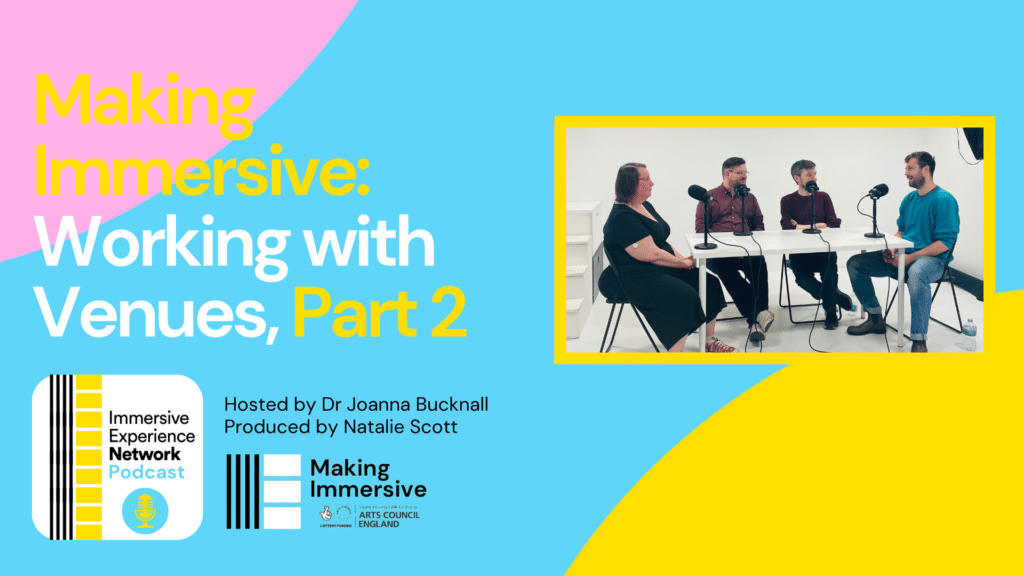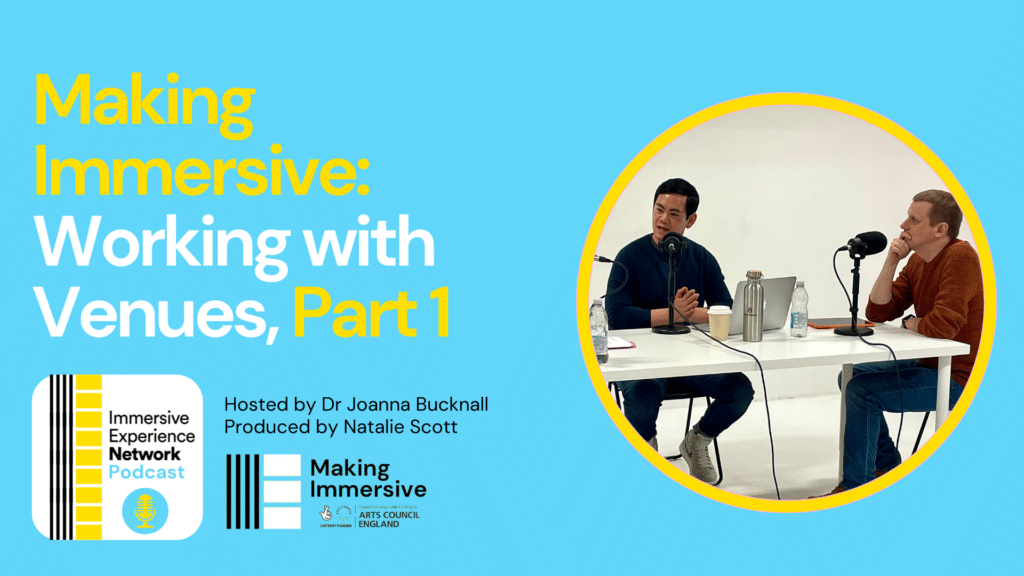So you have an idea for an immersive show or you’re looking for a space to incubate something new – but how do you go about finding a venue and making it ready to get audiences through the doors?
There are a few different avenues you can go down when looking for space that might suit your project, some options may work best for different types of company formations and budgets. Working in most buildings that are not fully licensed venues will require that you undertake appropriate Health and Safety processes to ensure that the building is safe and fit for purpose – you will also need to apply for any change of use, premises licence or planning permission before opening your doors to the public. We’ll be covering what these are and the technical “how to’s” of making these applications in Part Two of this article.
With all of these options, the legalities, contracting and lease negotiations will be individual to each project; this can be complex and it is always prudent to seek legal advice before signing on the dotted line.
Working with a Licensed Premises
Working with a venue that is already fully licensed and has planning permission in place is a great way of getting your show on without going through legal processes yourself, as this will already have been done by the venue. Bear in mind that it can sometimes be difficult for these venues to programme large scale, long running experiences as they will often already have a diverse programme for their established audiences and the hire cost usually reflects their established status. There are many interesting sites (eg. The Vaults in London) and many public parks now have a premise licence for a certain number of events per year. They will have established relationships with the relevant authorities and could potentially save you a lot of time if you can find the right space.
Council Managed Properties
Talk to your local council: if you’re a startup, CIC, charity or not for profit organisation, opening a dialogue with your local council can be an excellent way of identifying vacant properties and receiving a Business Rates Reduction that will reduce your costs (this will proportionate to the amount of space in the building that is occupied for charitable purposes). Some councils are even offering grants for organisations who are bringing cultural activities to meanwhile or unoccupied spaces that are owed by councils or council partnered developers. Different councils have varying approaches to meanwhile use; some are very proactive in encouraging their use as cultural hubs whilst others have no policies at all, which may present a hurdle to organisations looking to use space in this way.
Working with specialists
If you’re working on a larger scale or have funding secured, working with an established locations specialist or production company can be a great way of taking out the legwork – not only of searching for a venue which meets your requirements, but also of the paperwork and legal necessities that come with working in buildings that require a change of use, premises licence, planning and advertising permissions. Companies such as Secret Cinema and Punchdrunk have used location specialists who work to a brief to source and licence spaces for large scale, long running projects. This can be costly, so it’s important that you have a clear brief and great communication with the specialist or company you’re working with to ensure that you get the most out of your time with them. Some companies can offer packages that cover your needs from location scouting at the beginning of your project all the way through to completing the legal paperwork and managing H&S requirements.
Working with Developers
Identify and develop a relationship with active private property developers in your local area; often they will have a portfolio of spaces that are either being currently developed or are in an interim position (i.e. in the planning stages before permission has been granted by the council to be redeveloped). Taking advantage of these as meanwhile spaces is a great way to access buildings for site specific work, but there can be short leases or exit clauses (meaning you may need to leave quickly should permission for redevelopment to start be granted) with hidden costs and complex work to be done to get the building performance ready. Theatre Delicatessen have also worked with developers to inhabit their previous venues in Marylebone (formerly BBC studios) and Farringdon (formerly the Guardian building), and are a great example of working with developers whilst having a charitable remit.
Get Nosey!
Have a snoop around the area you’re interested in – many companies such as Colab have found their venues by chance – having spotted a vacant building and talked members if it’s security team, phoned the number on the hoarding or located the owner through the land registry service online. This can be a time consuming process and there are often many rabbit holes to go down, however the reward can be long term if you grow a relationship with a landlord or developer.
Top Tips
However you go about looking for a space to grow your project, there are some key things to think about before committing to taking on a space:
- Have legal advice in place to check paperwork and lease terms
- Work with a strong, experienced team to ensure the building is fit for purpose before agreeing to a lease. Don’t be afraid to ask for help!
- Have a clear idea of what you’re looking for; if your project is fixed in terms of the number of spaces you need or its layout, the journey towards finding a space can be longer. If there is flexibility in your vision or creative ideas this can make it easier to find a venue.
- Bear in mind that sourcing a space and negotiating terms can take a significant amount of time (before you’ve even made planning or licence applications!), make sure that your timeline and budget accounts for this.
- If you’ve found a gem – nurture your relationship with the local council and be prepared to make a case for how your project can serve the wider community ahead of any planning or licence application.




